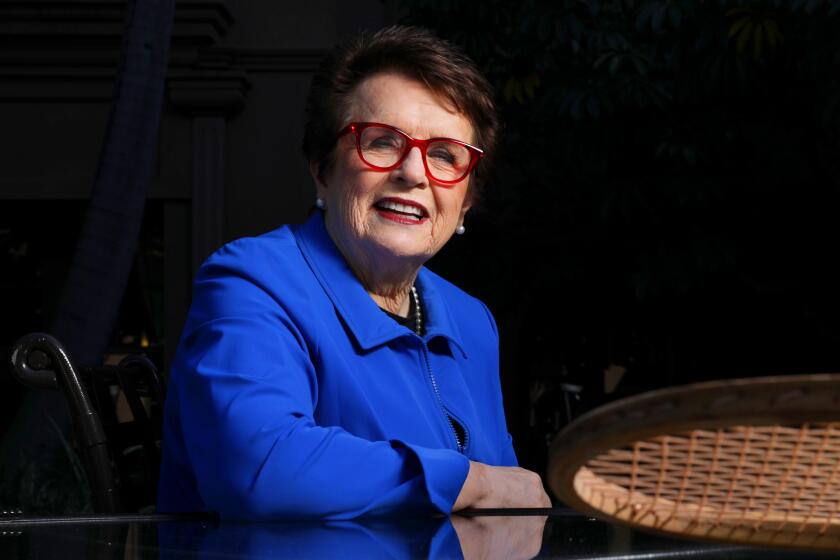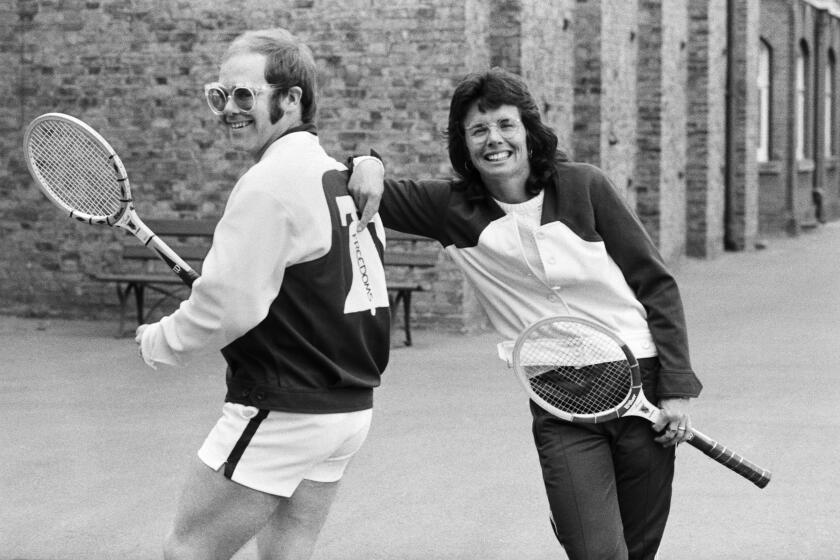Column: Billie Jean King’s ‘Battle of the Sexes’ triumph still inspiring 50 years later
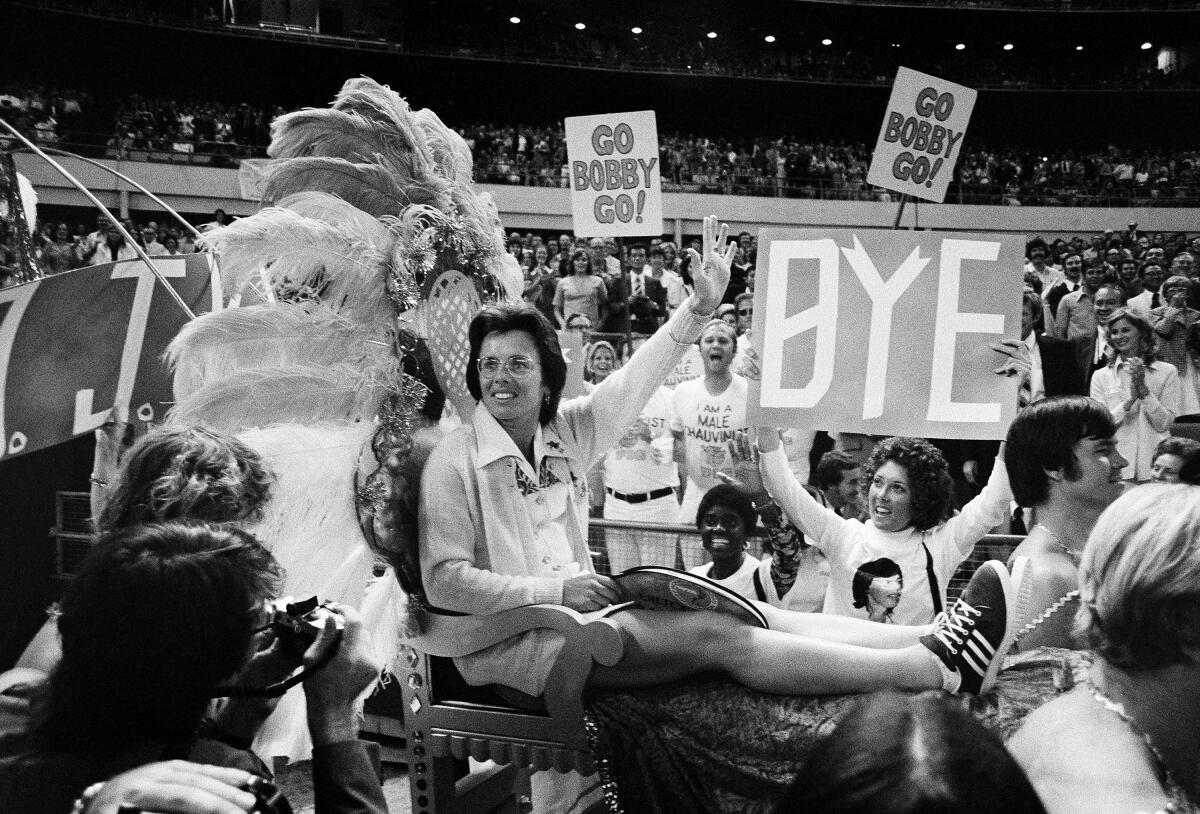
- Share via
Billie Jean King was carried out to the makeshift tennis court set up in the Houston Astrodome on a gilded, feather-decked chair held by muscular costumed athletes from Rice University, an over-the-top entrance for an over-the-top event.
Bobby Riggs was brought out in a rickshaw, escorted by models known as “Bobby’s Bosom Buddies.” After a successful career in which he won U.S. amateur and professional championships, a Wimbledon singles title and the No. 1 world ranking in 1939, he had slid into gray territory, becoming a bettor and brash hustler. True to form, he wore a jacket bearing the logo of Sugar Daddy candy that night. The women who surrounded him wore tight T-shirts with the same logo.
Billie Jean King reflects on why Title IX is so important for women’s sports and why she has dedicated her life to fighting for women’s rights.
An intriguing backstory enhanced the drama. King had rebuffed his initial challenge to play him, so he instead faced Margaret Court in what became known as “The Mother’s Day Massacre.” He boasted he’d defeat King just as badly after she agreed to face him on Sept. 20, 1973. Women lacked emotional stability, he declared. Certainly no woman could beat him, even though he was 55 and King was 29 and had recently won her fifth Wimbledon singles title.
Watched by A-list celebrities and a national TV audience that would hear play-by-play calls from bombastic superstar announcer Howard Cosell, King gave Riggs a live pig, a nod to Riggs’ self-proclaimed male chauvinist pig views. Riggs gave King a giant Sugar Daddy lollipop. He kept his jacket on to start the match, sure he wouldn’t work up a sweat against a woman.
When the formalities concluded, King proceeded to change the course of sports history and bring enduring muscle to the growing women’s rights movement.
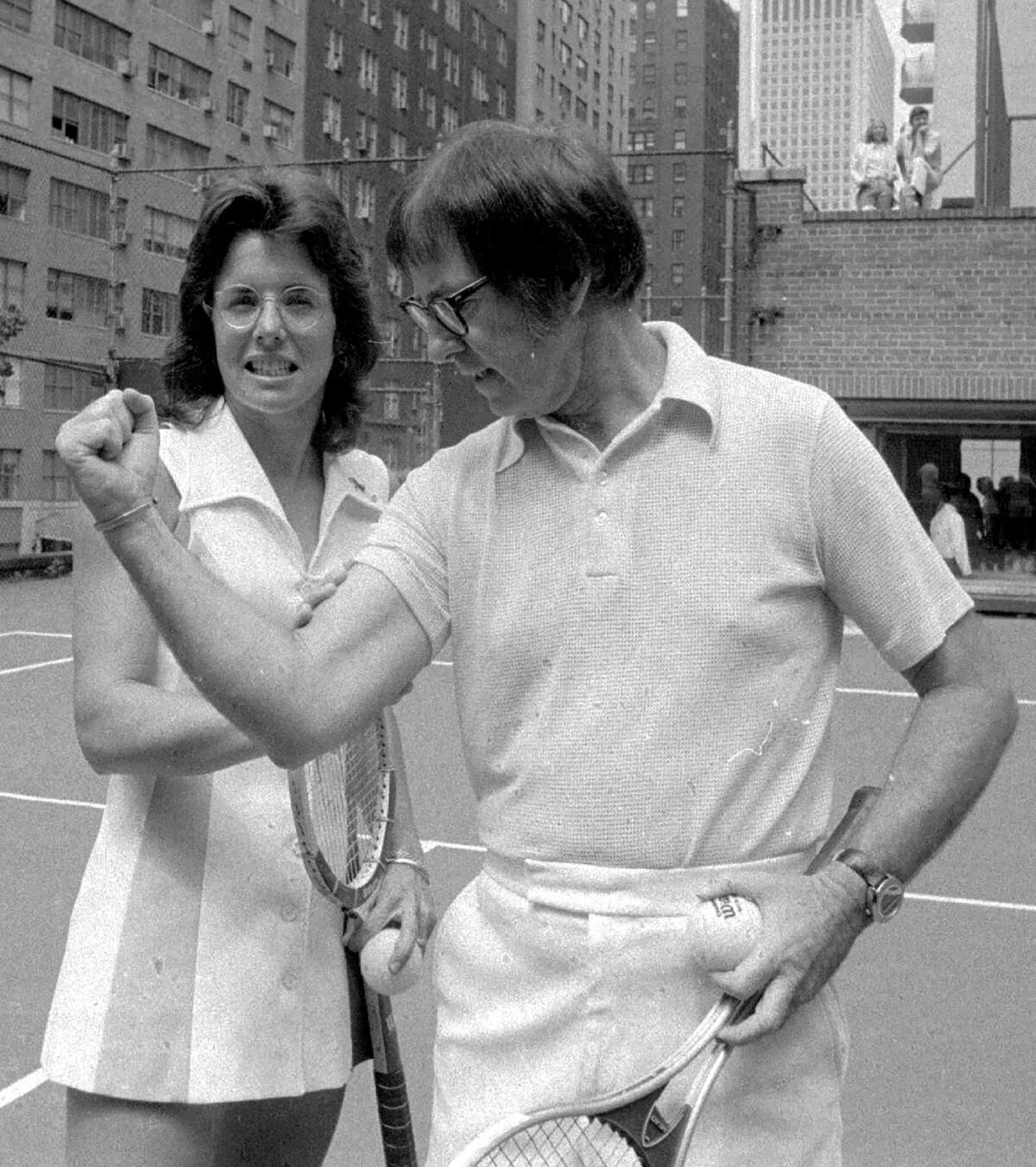
Wednesday is the 50th anniversary of the day King outsmarted and outplayed Riggs to win the best-of-five match 6-4, 6-3, 6-3 and earn a then-staggering $100,000 prize. In the process, she inspired dreams and determination among women who had repeatedly been told they didn’t deserve a place on the field, on the court, in medical or law school, or in the boardroom. A U.S. TV audience of 50 million and a global audience estimated at 90 million saw something bigger than a match: They saw a societal shift.
Still, who could have imagined people would still talk about the match 50 years later?
“I actually thought they might. It was really important,” King said during a phone interview last week. “That was really a huge, huge opportunity because everybody would be watching the same thing and I knew it was about changing the hearts and minds of people.
“I was very clear. I thought long and hard about the significance. Is it going to do good, or is it going to put us back years if I lose? And I knew it was one of those moments in history. I knew it was special and I knew it mattered that I won.”
It mattered because it took place when women were beginning to shatter old stereotypes, and she wanted to obliterate every shard of that glass ceiling.
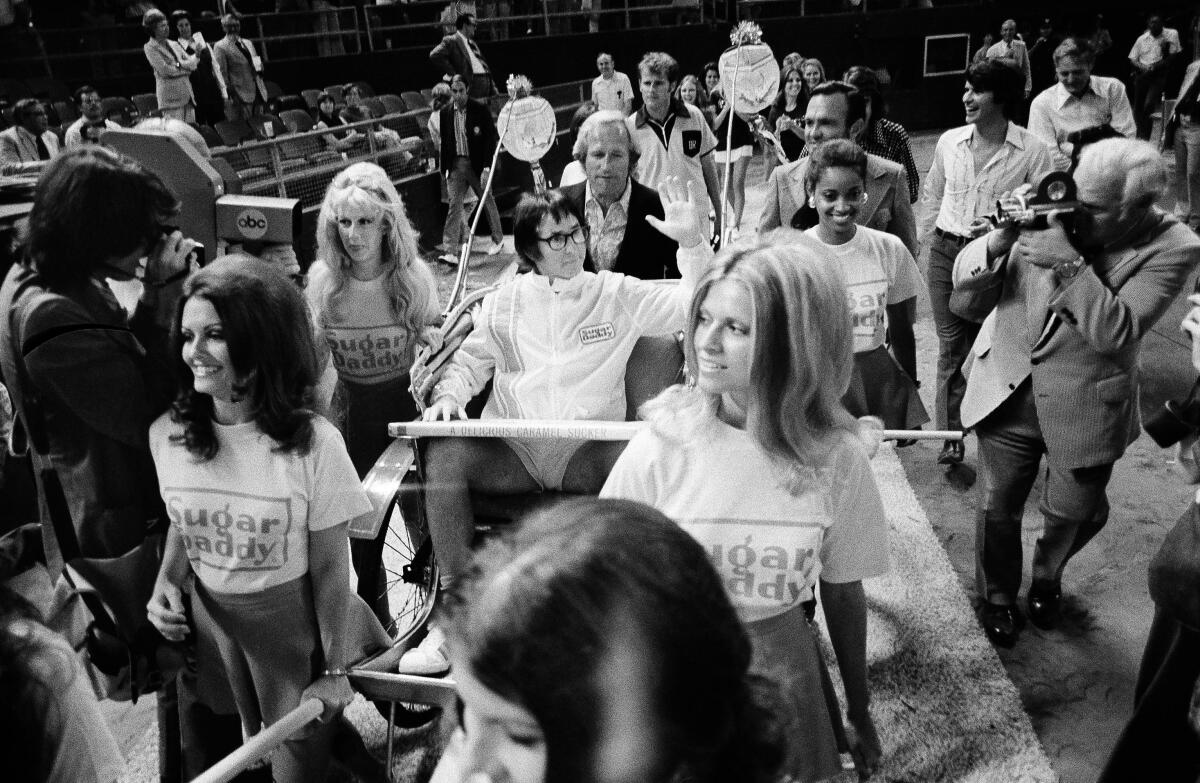
Three years earlier, King had been among the nine brave women who broke away from the sexist tennis establishment to form their own tour and seek better treatment and prize money. She delayed the match against Riggs to complete the formation of the Women’s Tennis Assn. in June 1973. Title IX, which prohibited discrimination based on sex in education programs or activities that receive federal funding, was barely a year old when she took to the court in Houston.
“I didn’t want it to get weakened,” she said of the landmark legislation. “I thought if I lost that match, that might hurt Title IX. It would hurt the feminist movement, which was in its second wave.
“We were just getting started, and I just knew this was an amazing opportunity for momentum one way or the other. It was either going to be a leap forward or it was going to make our road much more difficult. And when I say that, I don’t mean just the tennis. I mean women everywhere. And truly to change the hearts and minds of men, too, because they had more of the power than we did. So how do we get powerful people to change their hearts and minds?”
Improbably, given his insults and behavior, King and Riggs later became friends. In her 2021 autobiography, “All In,” she wrote that she spoke to him shortly before his death in 1995. One of the last things he said to her was, “We did make a difference, didn’t we?”
Yes, they did.
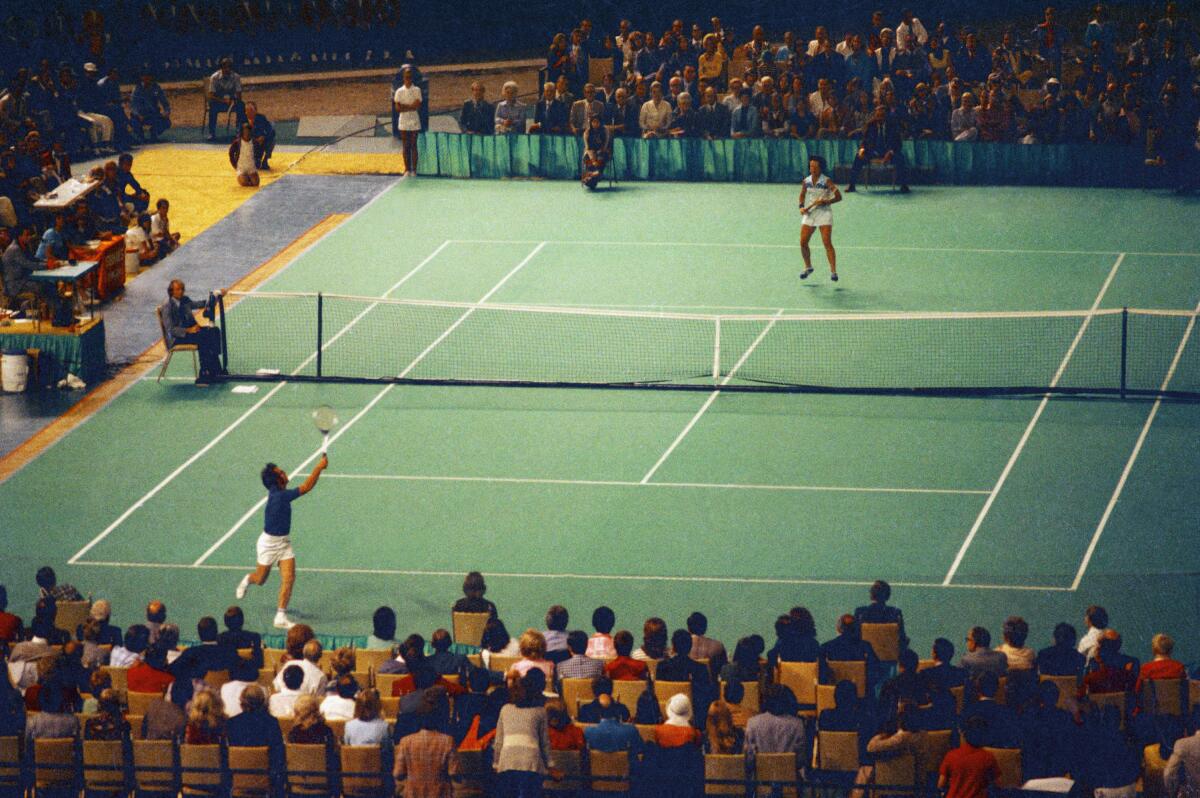
A 2017 movie starring Emma Stone and Steve Carell introduced a new generation to the Battle of the Sexes and King’s role in elevating women’s status. Yet even before its release, the match had earned a secure place in history. King said a day has rarely passed without people approaching her to share stories of how her victory over Riggs had dramatically changed their own path.
It’s another example of a favorite King phrase: You have to see it to be it.
Seeing a strong, successful female athlete inspired women to pursue their own sports dreams. They might not have won Wimbledon, but the teamwork, leadership skills and poise they developed through sports became assets to them in classrooms and boardrooms and everywhere else.
“I’ve had men come up to me ever since that match and say they never really thought about their daughters until that day and they thought, ‘Of course I want my daughter to have equal opportunity with my son. Why wouldn’t I?’” King said. “But they’d never really thought about it in a concrete way, and I think that helped.”
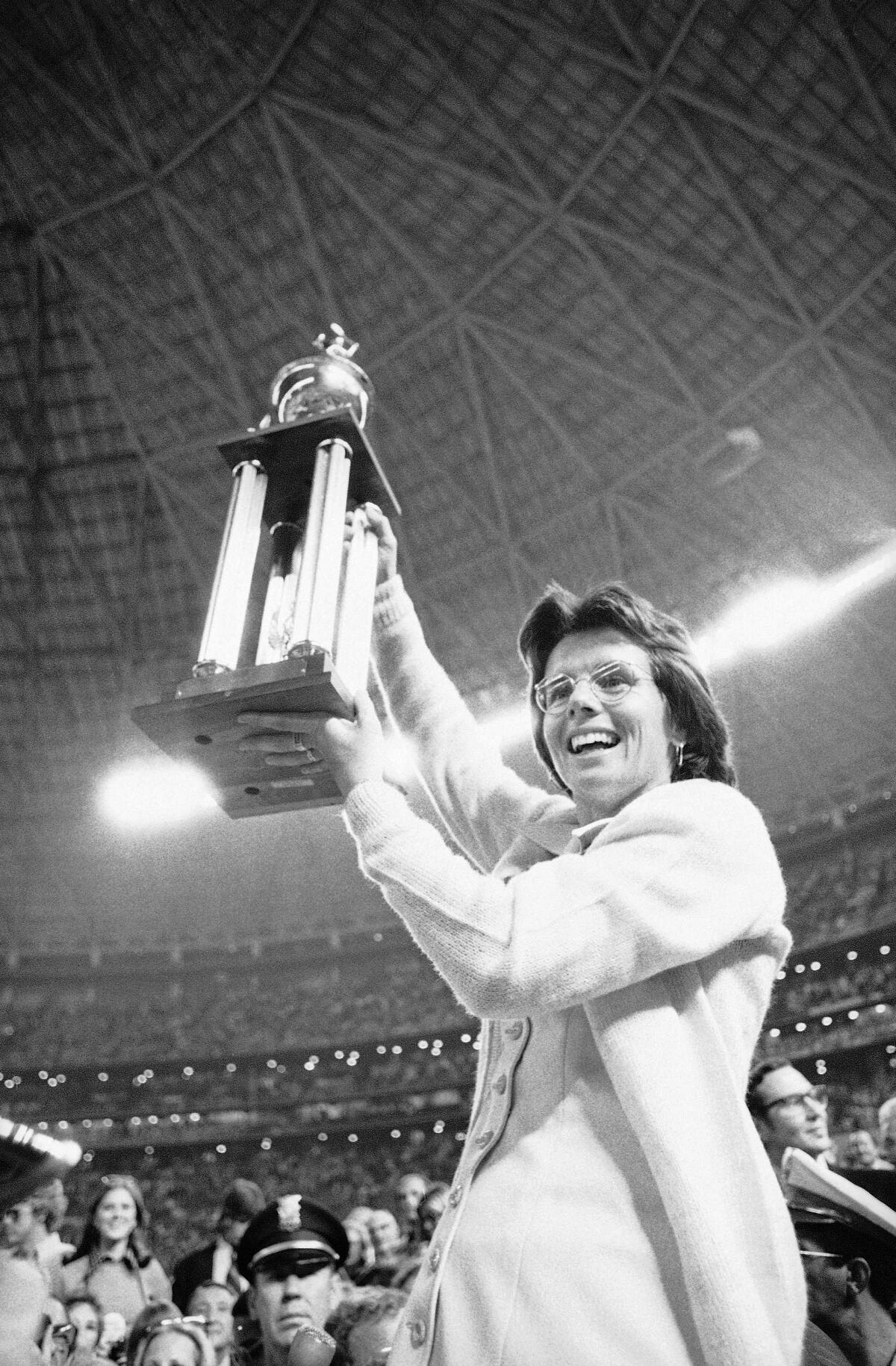
She recalled then-President Obama telling her he was 12 when he saw the match, which influenced how he treated his two daughters. “If it touched the hearts and minds of people like that, that’s good,” King said. “I knew it had a chance to, because it was about emotions. I knew people would feel emotional about their gender, about the opposite gender, about life and who deserves what.”
King, who was born in Long Beach, will be 80 on Nov. 22 but has no intention of slowing down. Besides the Dodgers ownership stake she shares with wife Ilana Kloss, she has taken on starting a company that will handle business aspects of the Billie Jean King Cup. She’s also providing support to the new Women’s Professional Hockey League along with Dodgers controlling owner Mark Walter and Walter’s wife, Kimbra.
She’s living a principle she discussed in her book: If you’re in the business of change, you have to be prepared to play the long game. While there’s still inequity in sports and the world, she’s prepared to play that long game.
“We’re not done yet. I’m not done yet.” she said. “Everybody goes, ‘What are you going to do now that you’re old? I’m like, ‘Are you kidding?’ I’m working harder now than I ever did, because you have to be patient and persistent and you can’t give up.”
And 50 years from now, people will still remember the Battle of the Sexes for being a watershed moment, not for the feathers and gilt and pigs of any variety.
As she releases her memoir “All In,” tennis icon Billie Jean King discusses her career, her causes and “living truthfully.”
More to Read
Go beyond the scoreboard
Get the latest on L.A.'s teams in the daily Sports Report newsletter.
You may occasionally receive promotional content from the Los Angeles Times.

